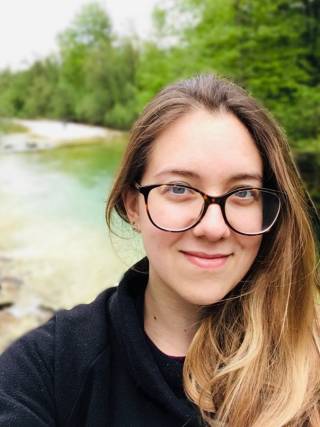Antonia completed her PhD with Prof. Mike Barlow in 2016, and was the recipient of the Skinner prize.

I started my PhD in the UCL Astrophysics group in October 2012 having moved down to London from Cambridge over the previous summer. I began working on the project that would become my thesis, writing a new code to model the passage of light through supernova remnants. My goal was to try to understand how the first solid particles in the universe (cosmic dust) form in the aftermath of the explosive death of massive stars. I learned to code in multiple languages, to apply various techniques in the creation of complex models and to handle noisy data. I also began developing a network of mentors and colleagues whom I would be lucky enough to learn from over the next eight years.
After handing in my thesis just before Christmas in 2015, I moved back to Cambridge to take up a position as a strategic analyst working for a technology firm. Before long though, I was back at UCL doing a postdoc in computational astrophysics. I honed my technical knowledge and added to it, deepening my understanding of statistics and software development principles. I became more immersed in life at UCL and enjoyed mentoring and teaching.
The first Covid-19 lockdown in 2020 gave me time to think about where I wanted my career to go. I decided to explore jobs working in healthcare, a long-term interest of mine and a field where I hoped I could have a more direct impact on society. The knowledge and skills I gained during my time at UCL enabled me to find a job working for AstraZeneca as a Machine Learning & AI Data Scientist in their Oncology R&D division. My day to day job is surprisingly similar to my work as an astrophysicist – I spend my time writing code, handling noisy datasets, and applying various statistical and machine learning models to try to understand what’s going on. This time though, the aim is to work out something about how cancer behaves or what treatments might be most effective and why. It’s a hugely rewarding role and I’m very much enjoying exploring a totally new domain using knowledge and skills I learned during my time in astronomy. My advice to anyone considering a PhD in astronomy would be to take every opportunity to learn and develop, both technically and personally, because you never know what may prove useful, and also to keep an open mind about what the future may hold. I could never have imagined when I started my PhD that it would lead to my current position but I am very happy that it did.
 Close
Close

